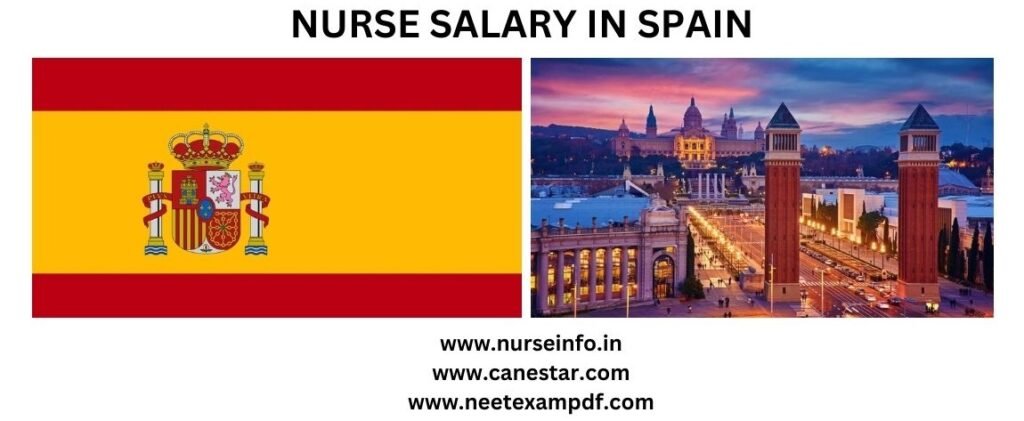NURSE SALARY IN SWITZERLAND BASED ON EXPERIENCE, EDUCATION, SECTOR, JOB SPECIALIZATION AND LOCATION
The nurse an average earns 9,970 CHF per month. A person working in nursing in Switzerland typically earns around 120,000 CHF per year. Salaries range from 76,800 CHF (lowest average) to 230,000 CHF (highest average, actual maximum salary is higher)
SWITZERLAND
Switzerland, officially the Swiss Confederation, is a landlocked country located at the confluence of Western, Central and Southern Europe. It is bordered by Italy to the south, France to the west, Germany to the north and Austria and Liechtenstein to the east. Switzerland is a mountainous Central European country, home to numerous lakes, villages and the high peaks of the Alps.
Switzerland Currency
The Swiss franc (CHF) is the official currency of Switzerland, Liechtenstein and the Italian exclave of Campione d’Italia, and is the only franc remaining in Europe.
The Swiss franc (CHF) is used as currency in Germany
One Swiss franc is equals to 89 INR (Indian rupee)
One Swiss franc is equals to 59 Piso (Philippine peso)
One Swiss franc is equals to 1.09 USD (United States Dollar)
NURSE SALARY BY JOB TITLE OR SPECIALIZATIONS
Depend on nurse specialization; the nurse salary will be determined. The nurse director hold highest position in health care industry, earns about 228,000 CHF per annum. The nurse without experience earns very less salary such as 99,800 CHF per month
Acute Care Nurse – 112,000 CHF
Assistant Director of Nursing – 175,000 CHF
Case Manager – 144,000 CHF
Company Nurse – 83,200 CHF
Critical Care Nurse – 116,000 CHF
District Nurse – 97,700 CHF
Head Nurse – 115,000 CHF
Home Nurse – 94,100 CHF
ICU Registered Nurse – 108,000 CHF
Informatics Nurse Specialist – 106,000 CHF
Licensed Practical Nurse (LPN) – 96,800 CHF
MDS Coordinator – 116,000 CHF
Mental Health Nurse – 105,000 CHF
Neonatal Nurse Practitioner – 147,000 CHF
Nurse – 99,800 CHF
Nurse Midwife – 121,000 CHF
Nurse Practitioner – 127,000 CHF
Nursing Assistant – 93,900 CHF
Nursing Coordinator – 124,000 CHF
Nursing Director – 228,000 CHF
Nursing Services Instructor – 111,000 CHF
Nursing Supervisor – 149,000 CHF
Occupational Health Advisor – 188,000 CHF
Occupational Therapist – 155,000 CHF
Personal Support Worker – 76,000 CHF
Psychiatric Nurse – 95,000 CHF
Registered Nurse – 97,900 CHF
Respiratory Manager – 194,000 CHF
School Nurse – 90,300 CHF
Staff Nurse – 98,800 CHF
Theatre Manager – 169,000 CHF
Utilization Review Nurse – 105,000 CHF
NURSE SALARY BY EXPERIENCE
An entry level registered nurse (1-3 years of experience) earns an average salary of 63,903 CHF. On the other end, a senior level registered nurse (8+ years of experience) earns an average salary of 111,579 CHF.
NURSE SALARY BY GENDER
Generally, the female nurse earns more salary than male nurse in Switzerland
Male – 117,000 CHF
Female – 122,000 CHF
NURSE SALARY BY LOCATION
In Switzerland, the nurse salary is depending on education, experience and specializations. In most cases, the nurse salary is determined by location. Depending on cities, the nurse salary is varied.
Basel – 127,000 CHF
Bern – 123,000 CHF
Biel – 111,000 CHF
Geneve – 129,000 CHF
Lausanne – 125,000 CHF
Lugano – 114,000 CHF
Luzern – 118,000 CHF
St. Gallen – 116,000 CHF
Winterthur – 120,000 CHF
Zurich – 132,000 CHF
NURSE SALARY BY SECTOR
In Switzerland, the nurse come from public sector earns higher salary than the nurse work in private sector
Private Sector – 121,000 CHF
Public Sector – 126,000 CHF
If you need more information, comment us below or email us.
Thank You











